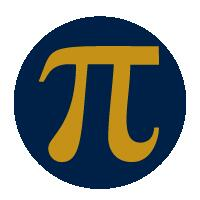Main Article: Logical Reasoning
Given a premise, a conclusion, and a rule in which the premise implies the conclusion, we can classify the relationship between them through the following types of logical reasoning:
-
Deductive Reasoning
The conclusion is obtained by applying the rule on the premise. Example:[Rule] Everything outside gets wet when it rains.
[Premise] The grass is out there.
[Conclusion] Soon, the grass gets wet when it rains.Mathematical logic and philosophical logic are usually associated with this kind of reasoning.
-
Inductive Reasoning
The rule is derived from several examples in which its application on the premise actually implies the conclusion. Example:The grass got wet every time it rained. So the grass always gets wet when it rains.
Although this reasoning has some persuasion, it is not valid deductive reasoning (read more about the problem of induction). Science is usually associated with this kind of thinking.
-
Abductive Reasoning
The premise is derived from the rule and the conclusion. Example:When it rains, the grass gets wet. The grass is wet so it may have been raining.
This kind of thinking can be used to develop hypotheses, which can be tested by more criteria. Pathologists, detectives, and scientists often use this kind of thinking.

Comments